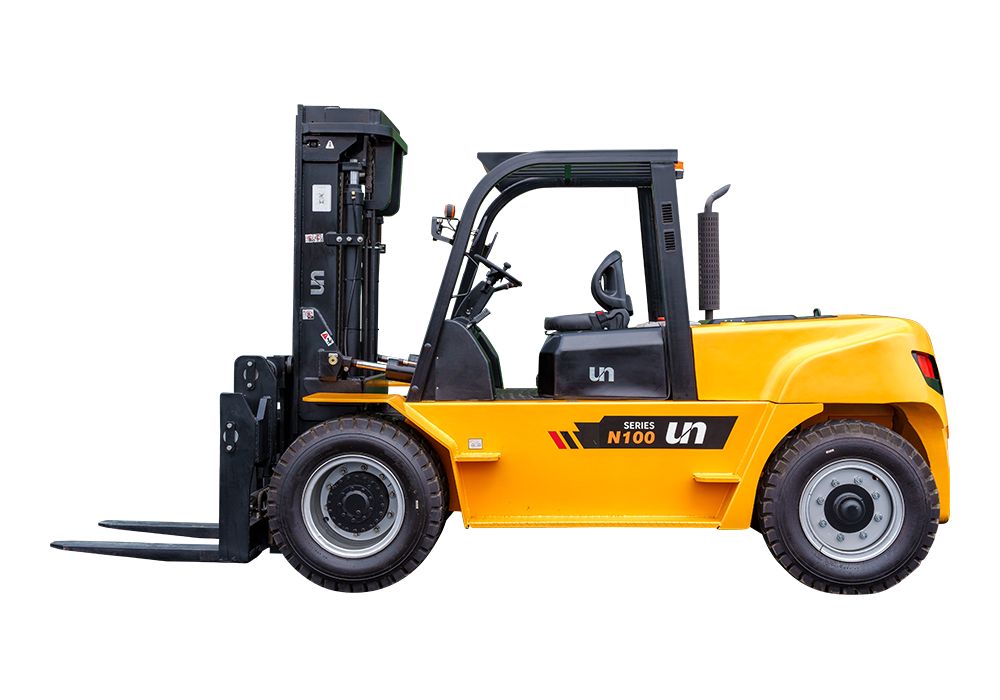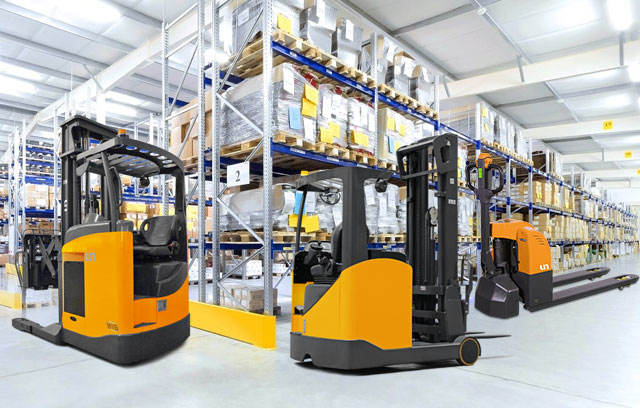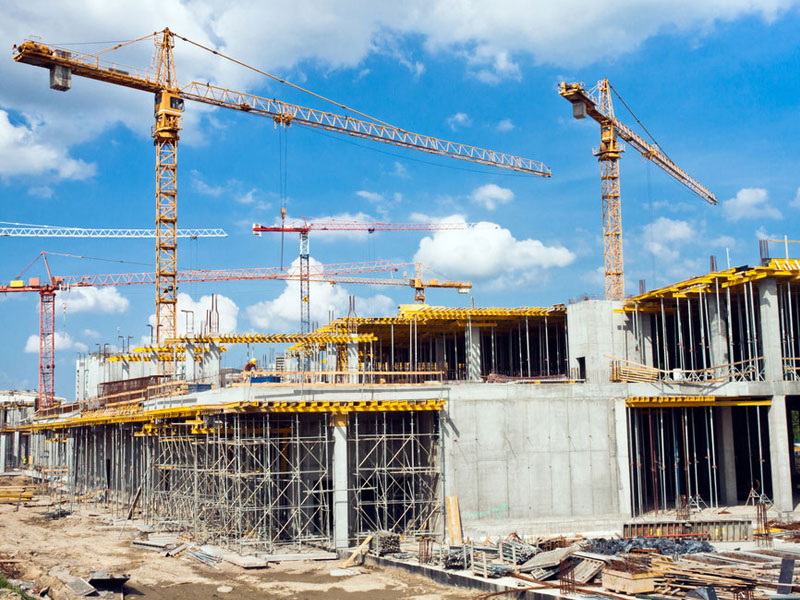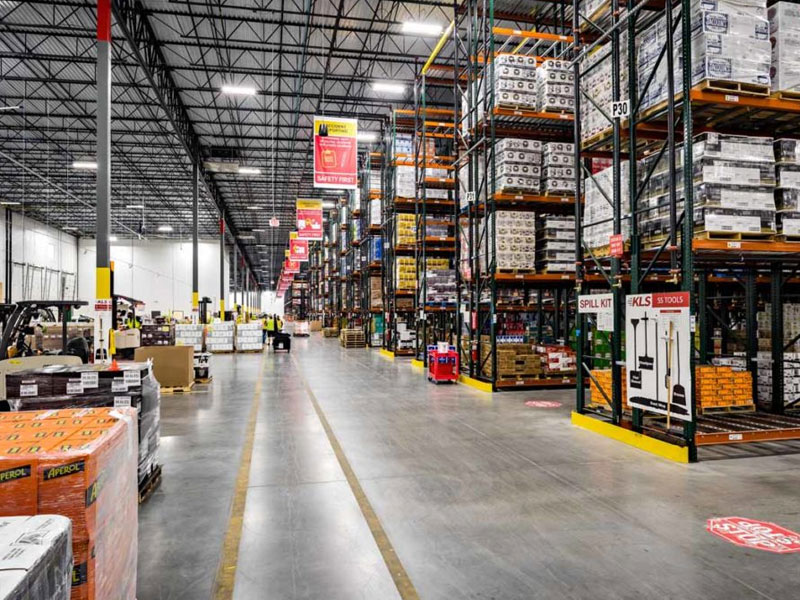Diesel Forklift Performance and Applications
Diesel forklifts, powered by internal combustion engines, offer high power output, making them suitable for handling and transporting heavy loads. Powered by a diesel engine, they perform reliably in most outdoor and well-ventilated environments. The diesel engine's torque allows the forklift to maintain excellent traction on uneven or rugged terrain, making them particularly suitable for cargo handling in locations such as docks, construction sites, and outdoor warehouses. Compared to electric forklifts, diesel forklifts offer greater adaptability for continuous operation and extended periods of operation, making them ideal for high-intensity logistics operations.
Diesel Forklift Load Capacity Advantages
Diesel forklifts generally have higher rated load capacities, enabling them to handle and lift heavier materials and meet the needs of loading and unloading large quantities of goods. This makes them competitive in the warehousing and logistics industries, particularly when handling steel, heavy machinery, and large containers. This increased load capacity not only improves the efficiency of individual operations but also reduces the number of lifts, thereby reducing operating time and labor costs.
Diesel Forklift Range and Refueling Convenience
Diesel forklifts typically have longer driving ranges than electric forklifts, making them suitable for long, uninterrupted operations. Diesel fuel is quick and convenient to refuel, allowing for quick refueling, eliminating the impact of long recharging times on operational efficiency. Furthermore, diesel fuel is readily available in many areas, providing logistics companies with a convenient fuel supply. Their range and refueling efficiency make diesel forklifts particularly suitable for 24/7, multi-shift operations.

Diesel Forklift Environmental Adaptability and Ventilation Requirements
Due to exhaust emissions, diesel forklifts typically require operation in well-ventilated environments or outdoors. This limits their use in confined or poorly ventilated warehouses. However, diesel forklifts offer a powerful advantage in open spaces and large-scale outdoor warehouses. Furthermore, with rising emission standards, modern diesel forklifts incorporate advanced exhaust treatment technologies, reducing environmental impact and increasing flexibility in their use.
Diesel Forklift Maintenance and Operating Costs
Diesel forklifts require relatively complex maintenance, involving the engine, fuel system, and emissions control. Maintenance frequency and costs are generally higher than those for electric forklifts. However, diesel forklifts are relatively mature and durable in structure, and proper maintenance can extend their service life. While routine maintenance requires a higher investment, their advantages in load capacity and range make them cost-effective in specific logistics and warehousing scenarios.
Diesel Forklift Operational Flexibility and Ease of Operation
Modern diesel forklifts are designed with operator comfort and ease of operation in mind, featuring user-friendly cockpits and control systems that ensure smooth operation. Diesel forklifts offer excellent starting and acceleration performance, facilitating quick response to operational needs. In larger logistics spaces, diesel forklifts can maneuver flexibly and efficiently handle cargo.
Comprehensive Advantages of Diesel Forklifts in Logistics and Warehousing
| Item | Description |
|---|---|
| Power Output | Internal combustion engine power, suitable for heavy loads and complex terrains |
| Load Capacity | Suitable for handling large tonnage goods, reducing the number of lifts |
| Endurance and Refueling | Long operating time, quick refueling, suitable for multi-shift operations |
| Environmental Adaptability | Suitable for outdoor and well-ventilated sites, modern models have improved emissions control |
| Maintenance Cost | Maintenance is more complex but structure is mature; proper upkeep can extend service life |
| Operating Performance | Designed with operator comfort in mind; operation is relatively convenient |
| Application Scenarios | Ports, construction sites, large outdoor warehouses, and heavy logistics environments |
Future Development Directions for Diesel Forklifts in Logistics and Warehousing
With the strengthening of environmental regulations and the development of new energy technologies, diesel forklifts face certain challenges. In the future, diesel forklifts will further adopt exhaust purification and energy-saving technologies to reduce emissions. Furthermore, hybrid technology, combining diesel engines with electric drives to improve energy efficiency and environmental performance, is likely to become a trend. When choosing a diesel forklift, logistics companies will also consider overall operating costs and environmental compliance. Diesel forklifts will continue to maintain their position in heavy-duty and outdoor operations, while their performance and environmental performance will continue to be optimized driven by technological advancements.











 中文简体
中文简体 عربى
عربى Español
Español














